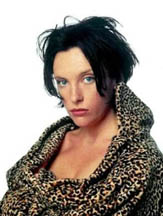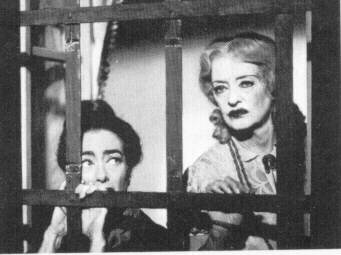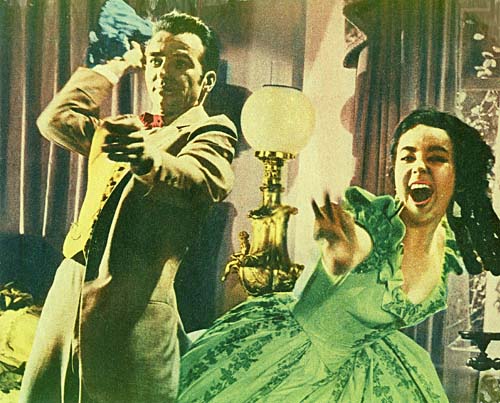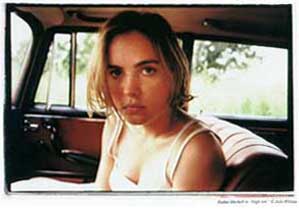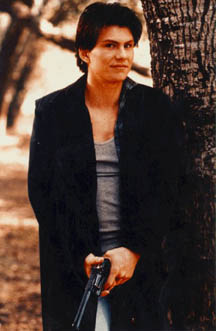Welcome to a Delightful Potpourri of Book, Movie, and Music Reviews
Books by Author
Books I Hated
| Patricia Cornwell | Radclyffe Hall |
|---|
Anne Rice
- Interview With A Vampire
Come on, everyone's seen the movie. Even my mother watched it. If you haven't, you probably don't like vampires anyway. The movie stayed very close to the book, except Louis mourned his brother who committed suicide instead of his wife who died in childbirth. And the ending is a little different. It's a good book, and full of action. This is classic Anne Rice.
- The Vampire Lestat
This is without a doubt the best of The Vampire Chronicles. Much more is explained about The Brat Prince (Lestat) and this is where you really meet Armand, Marius, and Gabrielle. Oh, some bad news... it's a "to be continued".
- Queen of the Damned
The other half of The Vampire Lestat and almost as good. I recommend it.
- Tale of the Body Thief
Since you're hooked on Lestat, you may as well read it. It's serviceable.
- Memnoch the Devil
This is without a doubt Anne Rice's worst novel that I've bothered to read. Well, I started to read it anyway. It was so boring I threw it into the garbage dumpster about halfway through it.
- Pandora
This book combines my two favorite subjects: vampires and Romans. Of course I loved it. If you avoided taking Latin in high school, you might not like it too much, but if you were one of those Junior Classical League geeks like I was, you won't be able to put the book down. It's very historical. My only regret was that she didn't go into more detail about what the Dark Ages were like for a Roman born in the days of Tiberius.
- The Vampire Armand
Smutty, rich, and baroque, this is probably the most typical example of everything Rice has ever written. Armand's amnesiac loose ends are a bit frustrating, however, and the book never resolves them. The ending is way too saccharine for Rice. She must have been under a deadline when she was finishing the book. I still liked it. A lot.
- Blood and Gold
You've met Pandora and Armand... guess what! It's time to meet The Vampire Marius himself. I bought the book as soon as I saw it and immediately devoured it. I was deeply disappointed. Given how much was written about Marius in The Vampire Lestat, Pandora, and The Vampire Armand, it is only natural to start the book with high expectations. Mlle. Rice would have done well to follow Faulkner's example with The Sound and the Fury and tell the same story from everyone's point of view except the protagonist. Poor Marius could never measure up to his image. Don't get me wrong; it wasn't a bad book by any means. I would rank it as being on the same level as Vittorio and Body Thief - readable but not great.
- Vittorio the Vampire
You'll love this book if your idea of a good time is hanging around the Rennaissance section in your local art museum. It wasn't a bad book -- it just wasn't spectacular. I don't regret spending fifteen bucks on the hardcover edition, but if you're new to Rice, start with something a little more exciting.
- Servant of the Bones
This is a delightful book and refreshingly different after all the vampires and witches. Mrs. Rice displays her phenomenal background research into Kaballah and Jewish culture in a well-written novel, although she slips a few times with casual references to Jesus and anachronous names of fictitious leaders (but I'm really nit picking here). Although the main character is a genie, the book is not nearly as occultic and blasphemous as many of her other works.
- The Mummy
A mediocre book that is marginally tied to The Vampire Chronicles. The imagery and descriptions in the book reminded me of movies like The Age of Innocence or episodes of Wishbone. The story is about a Victorian Egyptologist who happens onto the immortal Ramses.
- Exit to Eden
This book is pure filth and is best kept with the Readers Digests and Harlequins in a basket next to one's toilet. It is the filthiest book I have ever read. The movie did it a great service by adding a plot. If you enjoy clicking on all the links in SPAM e-mail, you will love this book. Anyone else will find it highly offensive.
- Cry to Heaven
Anne Rice's best book -- a masterpiece. This historical fiction deals with the castrati of 1700's Italy. Upon reading this book, I realized how much Mrs. Rice dumbs down for her audience. It is beautifully written.
- The Witching Hour
This book was amazing. It is the epic story of the Mayfair witches, a very inbred New Orleans family that traces its roots to Susannah the Simpleton, a naive witch in 17th Century Scotland who suffered the fate many of her ilk did at that time. The story zig-zags back and forth from the baroque era to the 1980s and back to the 19th Century and then forward again with trips to Riverbend (the family's antebellum plantation) and their estate in Haiti along the way. The book is rich and exotic. It feels like a trip to New Orleans on a steamy late spring day (something with which I do have some childhood experience). I think I might have liked this book better than Cry to Heaven.
Watch this space in the future for a link to the Mayfair family tree (can we say braided rope?) and my picks for the movie.
- Lasher
...
- Taltos
...
- The Feast of All Saints
This is another piece of historical fiction, this time about the multi-racial descendants of Haitian plantation owners in New Orleans in the 1850's. Although it also displays a phenomenal amount of research, it is a little dry and lacks the action of Mrs. Rice's other works.
William Faulkner
- As I Lay Dying
What do you get when you combine poor white trash, a dead body, and a dying wish to be buried with one's ancestors in another county? A book so funny and bizarre and concisely written that I could not possibly summarize it without telling the whole story. If it took place in Baltimore instead of Mississippi, John Waters would have made a movie about it. It's that kind of a sick book. William Faulkner wrote it while working the night shift at a power plant. One of my all time favorites.
- The Sound and the Fury
An ethereal book that tells the same story from four different viewpoints. My advice (if you really want to understand the book) is to read Jason first, then Quentin, then the last chapter, and read Benji last. This book is about the decline of great Southern family. Pat Conroy alluded to it in The Prince of Tides (another great book, but a terrible movie).
Here are my choices for the movie:
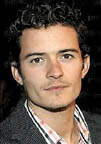
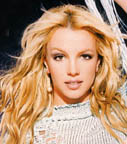
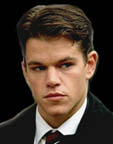

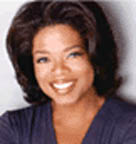
- Sanctuary
Faulkner's pulpiest novel. This one is about a bootlegger who kidnaps a debutante ("M-m-my father is a judge!") and keeps her as his sex slave. It is full of action.
- Requiem for a Nun
Faulkner's sequel to Sanctuary and mental justification for the sleaze he previously published. It is a much more ethereal book and written in the form of a play. It makes little sense if you haven't read Sanctuary first.
- A Light in August
This is Faulkner's most critically acclaimed book, which deals with a multiracial individual in the pre-Civil Rights era. Why are they after Joe Christmas? Read the book and find out.
- Absalom! Absalom!
Join Quentin Compson (The Sound and the Fury) once again as he tells the story of Col. Sartoris. I regret that I cannot tell you more... I lost the book during a move halfway through it and have been too lazy to replace it. The part that I read was pretty good, though.
- The Hamlet
Learn how the Snopes family took control of Jefferson, Mississippi, along with a plethora of odd tales about the eccentrics who also live in the area.
- Soldier's Pay
Faulkner's first novel, on the level of As I Lay Dying, about World War One veterans and a World War One widow. Light and enjoyable, full of Faulkner's sarcastic wit.
Here are my choices for the movie:
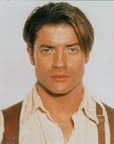
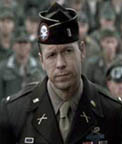
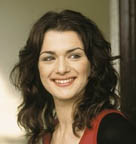

- Go Down Moses
Faulkner won the 1950 Nobel Prize for Literature with this tragedy about slavery, incest, bereavement, and morality.
The Short Stories- A Rose for Emily
Does your family have any skeletons in the closet? Emily's does -- quite literally.
- Red Leaves
A sick story about a tribe of cannibalistic Native Americans in the 1820's who buy slaves for food.
- Two Brothers
A tale of brotherly love and devotion that I never fully understood, but nonetheless made an A on in college when I adapted it as a screenplay that takes place during the Gulf War. The younger brother follows his older brother to boot camp when he is drafted to fight in World War II.
- She Who Would Be Queen
A contrast between the "legitimate" granddaughter (by marriage) of Col. Sartoris and his "illegitimate" but genuine granddaughter through one of his slaves. This short story is full of irony.
Ayn Rand
- Anthem
If you like books like 1984 and Brave New World, you'll like this one, although it's much shorter than its other negative utopia counterparts. Ms. Rand, in typical objectivist manner, criticizes groupthink and praises the effect competition has on our quality of life. It was pretty good, but another of her works is better...
Here are my choices for the movie:
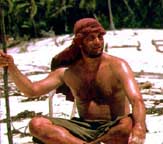
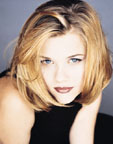
- The Fountainhead
I read this book in about two weeks. Did I mention the book has over 700 pages? Needless to say, I could not put this book down. It's great. Ms. Rand had the insight of Scott Adams (Dilbert) but wrote this book over 50 years ago. It also has beautifully written romance in it, and is brutally honest about what makes people tick. Every college graduate should read it before entering the workforce. What the heck? Everyone should read this book. Buy it. Read it. I guarantee you'll love this book.
Here are my choices for the remake:

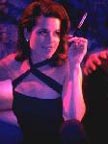
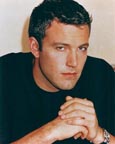

- Atlas Shrugged
This book is inspiring, but, at over 1000 pages in paperback, a true commitment to read. After taking a six month hiatus from it, I finished it and found it quite insightful. The book really changes how you view everything in society. It is a classic. I wish they would hurry up and make it into a movie, although, like many others, I wonder how they would make John Galt's longwinded speeches palatable to moviegoers who don't want to sit through 20 minutes of political/philosophical monologue.
Anyway, here are my choices for the movie:
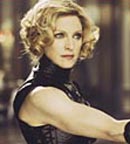
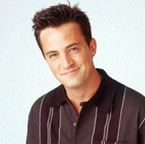
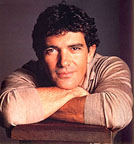

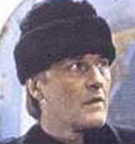






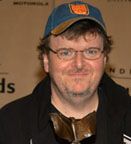

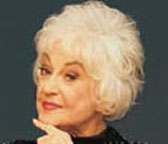

Amy Tan
- The Joy Luck Club
This is another of my all-time favorites. If you happened to see the movie, Oliver Stone did an excellent job of sticking to the original book. He did leave out some minor details and a very important one, but nonetheless his movie was one of the closest adaptations to a novel I've ever seen.
If you haven't read this great book or watched the movie, the story is about four Chinese immigrant families in San Francisco and their lives before they came to America. Amy Tan also explores the four different family dynamics and their causes by telling two stories by each mother and each daughter. It is a tearjerker.

- Kitchen God's Wife
A disappointment after The Joy Luck Club. This book would depress Charles Dickens, although anyone of Asian descent will get a belly-laugh from the funeral scene at the beginning. I wouldn't go so far as to say it's a bad book; it just isn't as good as The Joy Luck Club. The story is about a nice little debutante who marries the boy next door with disastrous results. The ending is a bit predictable, but still shocking.
Anne-Marie MacDonald
- Fall on Your Knees
Anne-Marie MacDonald's epic saga spanning several generations, four countries, and every known taboo plus a few new ones. It is beautifully written. Oprah loved it. Just about everyone I know who's read it cried at the end. It's the kind of book I hope my first novel will be... except, um, well, see, there was this book William Faulkner wrote called Go Down Moses back in 1950 that... oh, I'll shut my mouth because I don't want to spoil the book. Whatever its (major) flaw is, the book is still definitely worth reading (maybe even more than once).
Here are my choices for the movie:

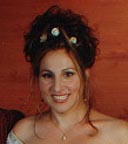
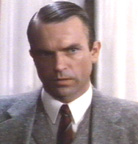
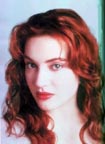
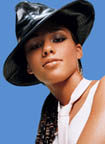


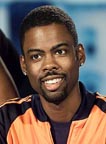

- Silence of the Lambs
The movie was much better than the book. Enough said.
- Hannibal
I absolutely loved this book, although I waited a while to read it because I was so disappointed by his last one. Thomas Harris is becoming a good writer, I mean a really good writer. I don't care what Jodie Foster thinks, I thought the book realistically mapped Starling's transformation from a sacrificial lamb at the FBI into a brainwashed cannibal.
- Postmortem
Join Kay Scarpetta, MD, member of the Bar, licensed medical doctor, gourmet chef, and chief medical examiner for the State of Virginia, as she works with slovenly detective Pete Marino to find a serial killer in spite of petty office politics that she is finally freed from by her homosexual assistant. She also has to deal with the death of someone close to her while all this is going on. (Scarpetta became interested in dissecting death and learning all its componenets as a way of coping with her father's death from cancer when the bookish Italian girl was a teenager.)
- Body of Evidence
Join Kay Scarpetta, MD, member of the Bar, licensed medical doctor, gourmet chef, and chief medical examiner for the State of Virginia, as she works with slovenly detective Pete Marino to find a serial killer in spite of petty office politics that she is finally freed from by her homosexual assistant. She also has to deal with the death of someone close to her while all this is going on. (Scarpetta became interested in dissecting death and learning all its componenets as a way of coping with her father's death from cancer when the bookish Italian girl was a teenager.)
- All That Remains
See above...
- Cruel and Unusual
Ditto.
- The Body Farm
Ibid.
- From Potter's Field
Ibid.
- The Last Precinct
You know the drill.
Radclyffe Hall
- The Well of Loneliness
This book has been lauded as an iconoclastic social commentary. I found it a colossal bore loaded with bad cliches. There is a word in Hebrew, RAGSHANI, which embodies the spirit of this overwrought melodramatic work. For example, who could forget such immortal lines as "She could see their marred and reproachful faces with the haunted, melancholy eyes of the invert -- eyes that had looked too long on a world that lacked all pity and all understanding: 'Stephen, Stephen, speak with your God and ask Him why He has left us forsaken!'" and "Stephen bent down and kissed Mary's hands very humbly, for now she could find no words any more . . . and that night they were not divided"? This book is valuable if you have too much time on your hands and want to read something bad solely for its kitchiness.
Oh, come on! We're talking about Titanic! If you haven't already seen it, you're probably paranoid or something. Go buy yourself a copy. It's great, even if the plot was stolen from Total Eclipse (starring Leo DiCaprio). While you're at it, pick up a box of tissues. I even caught my brothers sniffling at this one, although they'll never admit it if you ask.
P.J. Hogan's campy masterpiece. Every line in this movie is quoteable. Whether you were picked on like Muriel and Rhonda or whether you were the snot who told her not to hang around with you and your friends any more (Mary, if you're reading this, I am truly sorry about Spring Break and I apologize from the bottom of my heart for my cruel and insensitive behavior), you will this movie! This is without a doubt my all-time favorite movie.
One of the most warped movies ever made. A true classic and you absolutely must watch it if you've never seen it before. Starring Joan Crawford and Bette Davis.
Speaking of warped movie classics, this is another one. Elizabeth Taylor and Montgomery Clift star in this Civil War era movie as an abolitionist couple who moves to Indiana. If you see it listed, set aside a few hours to watch this classic and make sure to keep an eye out for Elizabeth Taylor's doll. Creepy, I tell you, really creepy.
A Gen X tale of a young editor who gives up everything for her story. One of my favorites, but don't watch it if you're easily offended, because it contains a lot of illicit drug use and some references to homosexuality.
The movie, although good, isn't spectacular, but it is warm and fuzzy and there is a really, really cute dog in the picture.
Also known as The Gospel According to Saint Goth. Wanna know the plot? Blow the dust off your King James and read Luke's Gospel. The special effects are way cool, though, and everyone I know who saw it went back to see it again. You'll like it whether you're into sci fi, goth, or religion.
Before their current problems with the criminal justice system, Christian Slater and Wynona Ryder played in this timeless classic. Another one of my favorite warped, sick movies and a great source of quotes for lots of my term papers my junior year at BU. (All given proper citation, of course. I don't do the plagarism thing.)
This movie gets better every time I watch it. What would you do if your drunken stepmother only left you one dollar out of her millions when she passed on? Christina Crawford wrote a book and then made a movie.
My favorite line? "Tina, bring me the axe!"
- Kitchen God's Wife
- The Sound and the Fury



